The podcast making process
You just put a voice recorder in the middle of the table, press record and you’re done! But is that a podcast? Maybe, especially if you link the audio to an RSS feed and publish it. But it is not professional. It’s more like shooting a movie with a selfie camera.
When creating a podcast series, most of the time is spent in the pre-process and post-processing (selection and editing of the audio). The recording of the conversations themselves usually takes the least time.
The podcast making process of Studio Lijn 14 consists of 10 steps. It is essential to plan enough time for preparation. Think in parts of days rather than hours to arrive at the right vision and the appropriate format of the podcast.
A podcast series in 10 steps
- Goal: why am I making this podcast, what do I want to achieve with it and when was that goal achieved?
- Target group: who am I doing this for? Zooming in on the target audience helps determine the tone of voice – the language and style of the podcast.
- Message: what message do you want to give. The content of the podcast must connect seamlessly with the previously formulated goals and the target group.
- Topic per episode: Which stories will be told in the podcasts? Give each episode its own angle and topic that fits the overarching theme of the podcast series.
- Format: Which format do you choose for the podcast series? An interview podcast, a magazine formula with multiple story elements, a storytelling podcast or a live podcast with different experts at the table? Also don’t forget the wallpaper, think of the start and end tune, soundscapes and background noise.
- Speakers: who do you want for the microphone? Who presents the series? Do you choose your own speakers or do you want to hire external speakers? It is also worth considering using a well-known Dutch person to give the fame of the podcast some wings.
- Selection and editing: depending on the format that has been chosen, choices have to be made. What do we want to keep in it or what might we not. Podcasts don’t usually air live, so remove boring passages and vague digressions and replace them with lively examples and concise voiceovers.
- Frequency & duration: how many episodes does the series have, approximately how long do you want an episode to last and what is the appearance frequency?
- Distribution: On which channels will the podcast be heard in the future? Think of iTunes (Apple podcast), Spotify and all kinds of podcast apps that are available today.
- Promotion: how are you going to plug in the podcast, which channels do you want to use and what budget do you have at your disposal?
Our approach
Based on a brainstorming session, we walk through the steps and draw up a podcast building plan. Then, per episode, names are linked to the presenter and the potential candidates (guests). Where necessary, we refine skills with training and coaching, such as interview techniques and the art of recording voice-overs.
Then it is time to produce and evaluate the pilot episode. From the evaluation, adjustments are made per episode and after consensus, the episodes are uploaded by us and added to the RSS feed.
A podcast series lends itself well to working with seasons. It is essential that your freguent publishes a new episode. Building audience (subscribers) is the core of podcasting. Our motto: create a platform and claim your (podcast) domain that way.
Regardless of the preferred location, we supply the right microphones and peripherals in every situation. From a one-on-one interview during a forest walk in the Veluwe to a pop-up studio for 6 speakers during a well-attended event in the Jaarbeurs halls.
During the preparatory meetings, we make an inventory of the wishes with regard to the location, format and number of speakers. It is good to know that we have our own soundproof, ‘floating’ podcast studio. The studio is located on the A4 near Leiden and is easily accessible by both car and public transport.
We also take care of the hosting of the podcasts and the distribution. We explain in simple language how distribution works and which channels suit the wishes of the client.
We also mainly discuss the promotion plans for the podcasts – this is extremely important. Without promotion, you can compare a podcast to a brochure that has been left on the shelf because no one has taken on the task of distributing the brochure.
It is also essential to consider in advance how you can use the social media channels to promote the podcasts. Which external platforms will they be on. How can we use influencers and increase the audience.
As founders of Podcast Luisteren.nl – the largest independent podcast platform in the Netherlands – we can also make direct agreements about promotion.

